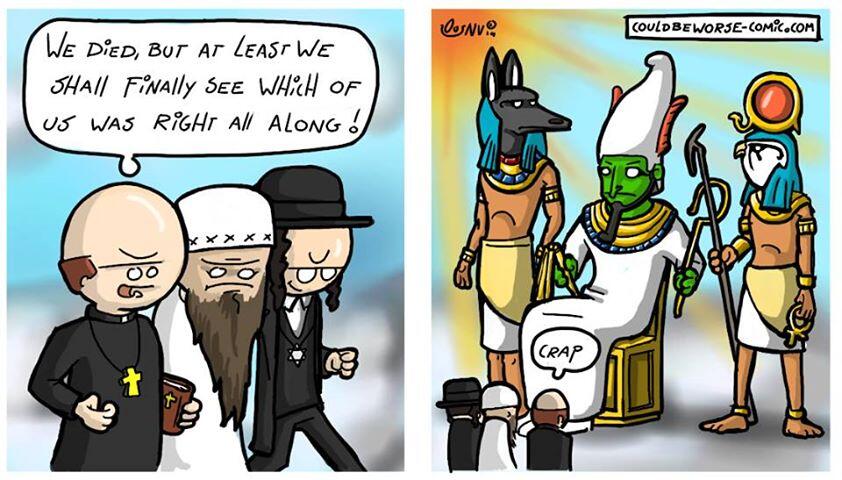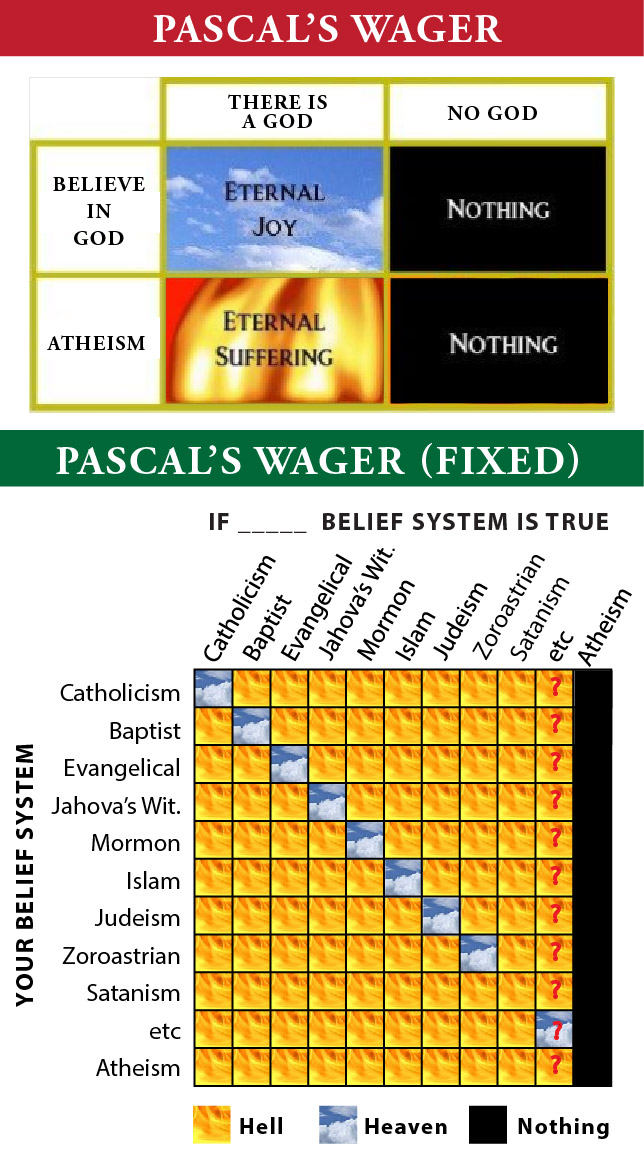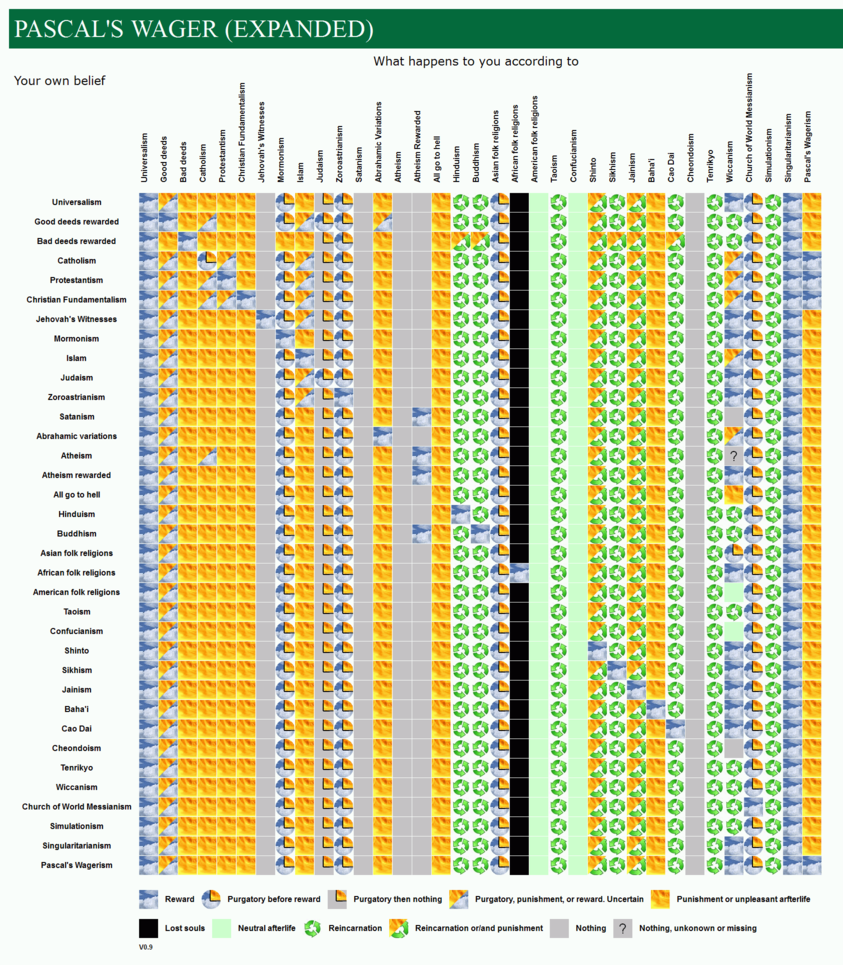|
Pascal's Wager
is an argument in apologetic philosophy which was devised by the
seventeenth-century French philosopher, mathematician, and physicist
Blaise Pascal (1623 - 1662). It posits that humans all bet with their
lives either that God exists or does not exist. Given the possibility that
God actually does exist and assuming an infinite gain or loss
associated with belief or unbelief in said God (as represented by
an eternity in heaven or hell), a rational person should live as though
God exists and seek to believe in God. If God does not actually exist,
such a person will have only a finite loss (some pleasures, luxury, etc.).
The wager is flawed in the sense that it assumes only one diety. To date we have recorded some 2,800 dieties. Which one is right? Or are they all wrong! |





Send comments to:
 hjw2001@gmail.com
hjw2001@gmail.com
|



